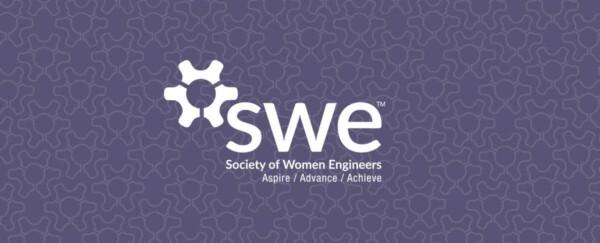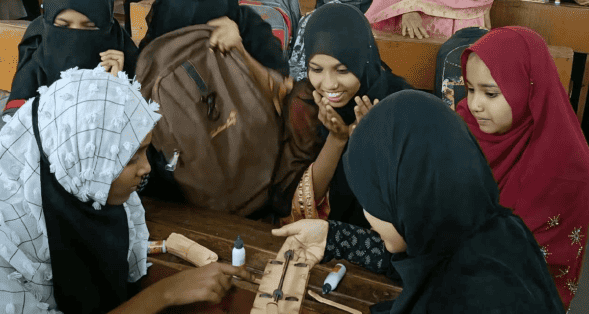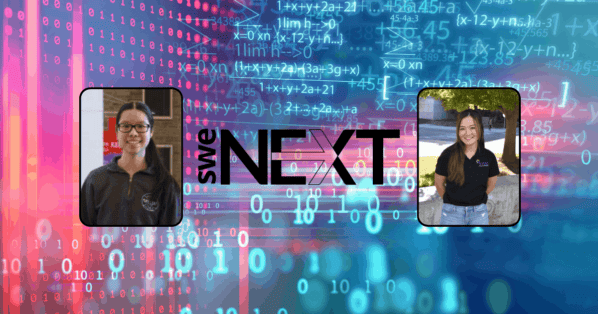As a rising junior at Highlands Ranch High School in Colorado, in the summer of 2022, I had the chance to intern for the Pak Research Group Laboratory for Multiscale Modeling of Macromolecular Assembly & Control (LMAC), a computational lab located at the Colorado School of Mines (CSM) with the Society of Women Engineer’s (SWE) support. After applying, interviewing, and effectively expressing my interest in engineering, I was accepted to intern with the research group. My role within the team was to initiate and develop a program to help my team analyze one aspect that coarse-grained modeling could not tell us, the distances between specific atoms in proteins, as we did with HIV. This is an important step in the long-term process to improve drug delivery in the human body.
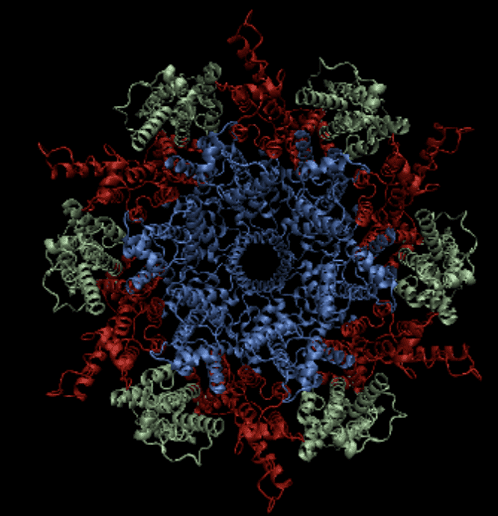
Specifically, for computational lab researchers in biochemistry, coarse-grained modeling of proteins allows scientists to examine protein structure interactions and dynamics. Coarse-grained modeling is a relatively new practice. Only as recently in 2013, researchers were recognized with the Nobel Prize in Chemistry for their efforts in developing multi-scale models for complex chemical systems. Molecular models can hold upwards of 30,000 atoms making all-atomic structures incredibly complex for scientists to analyze. Coarse-grained modeling takes molecular groups and represents them together. For example, one such molecular group would be different amino acids. Amino acid groups always exhibit the same properties so there is no need to analyze the properties of each individual atom within an amino acid every time. While coarse-grained modeling has advanced, it is still in development.
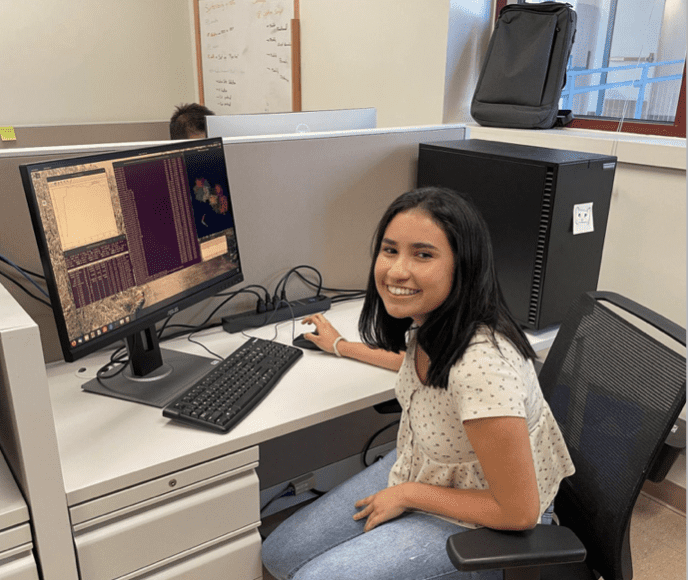
This first-in-a-lifetime ten-week research internship under Dr. Alexander Pak, Assistant Professor of Chemical and Biological Engineering at CSM helped me explore an area of interest that I will take into account for my future collegiate studies. Dr. Pak specializes in the analysis of the structure and properties of molecular building blocks for healthcare, sustainability, and energy applications. The work of LMAC, under his leadership, fixates on two research streams: (1) the simulation of peptides for (a) improved drug delivery and (b) antivirals, such as Covid-19 therapeutics, and (2) the designing of nanobodies for antibacterial functions using coarse-grained models. Using Protein Data Bank files, the distance program I initiated enables researchers to understand where different functional groups lie in molecules. Zooming in on specific molecular interactions, allows us to see what the effects of drugs, antivirals, and nanobodies are on proteins in the human body. Ultimately permitting researchers to create practical applications in medical care and towards potential environmental capabilities.
This experience gave me incomparable exposure to biochemistry and the field of research because as a high school student, I had never worked in a lab before. Whether debugging Python code or grasping advanced chemistry concepts, I experienced the excitement, challenges, and thrills of research. In weekly team meetings, I saw the strength of discussion and collaboration towards progress and in staying knowledgeable about the field. Since then, I have been able to further develop my understanding of science and programming through AP Chemistry and AP Computer Science Principles this year. Moving forward, I am excited to apply these skills to the clubs I belong to as well, like Technology Student Association and Cyber Patriots, and to share what I have learned with my peers so they can also access these opportunities. On a personal level, I am grateful for the challenge, I realized that I love to learn, that grasping difficult concepts keeps me excited and aware of all I have yet to learn, and that strong research teams are created through effective leadership, mentorship, and the sharing of knowledge.
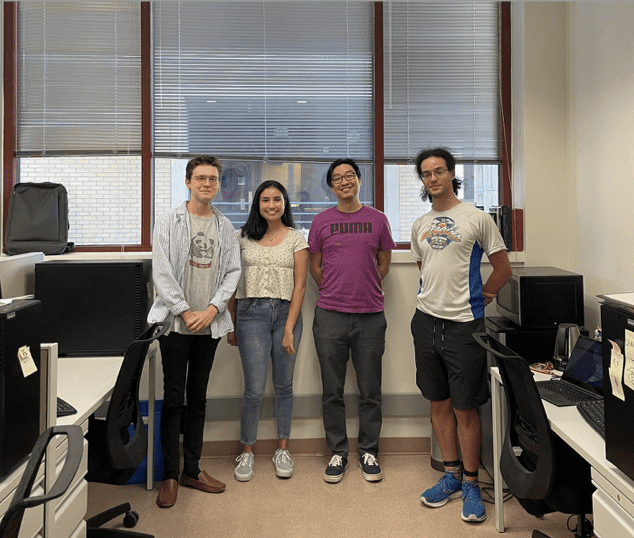
Many thanks to Dr. Pak, the LMAC team, CSM, and Ms. Markita Riley, Outreach and Student Programs Manager, at SWE for investing in me; it made a difference and has shown me that with my fire for science and programming, knowledge can be expanded to create scientific innovations.
Author
-

SWE Blog provides up-to-date information and news about the Society and how our members are making a difference every day. You’ll find stories about SWE members, engineering, technology, and other STEM-related topics.


